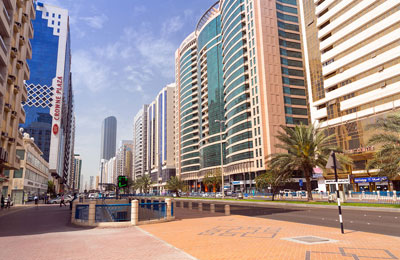
Abu Dhabi... to benefit from increased power and water bills
Utility tariff hikes ‘could save Abu Dhabi $2bn’
ABU DHABI, November 30, 2014
The sharp increase in power and water tariffs from next year in Abu Dhabi could save the Emirate at least $2billion if the experience of higher tariffs in neighbouring Dubai is anything to go by, said an industry expert.
“The introduction of higher tariffs in Dubai in early 2008 has ultimately saved Dubai at least $2 billion by ensuring it has not had to award new power and desalination facilities in the ensuing period,” said Ed James, director of Analysis at Meed Projects, a provider of comprehensive information on Mena projects.
“This is an addition to the hundreds of millions of dollars saved from reduced subsidies. The measures announced last week by Abu Dhabi have these cost savings in mind, but are also recognition that the era of unfettered access to almost free power and water must come to an end especially as oil prices enter a bearish period.
“At the same time, Abu Dhabi wants to consolidate its position as one of the region’s and the world’s pioneers of renewable energy, which it can only do by lowering its carbon footprint,” he added.
James was speaking ahead of annual Meed Abu Dhabi Conference at the St Regis Corniche in Abu Dhabi on December 8 and 9. The increase in tariffs and the capital cost savings will be a key discussion at the summit.
In the five years to 2008 water demand in Dubai grew from 177 million imperial gallons a day (MIGD) to 264 MIGD, a compound average growth rate (CAGR) of 8.3 per cent, according to Dubai Electricity & Water Authority (Dewa).
However, following the Dubai government’s decision to introduce a slab tariff and increase power and water rates for expatriates and industry in 2008, water demand has grown by a much smaller CAGR of just 1.8 per cent, from 271 MIGD in 2009 to 296 MIGD in 2013.
Demand for electricity also showed a similar decrease. Between 2004 and 2008, peak demand for power grew by a CAGR of 10.4 per cent from 3,228MW to 5,287MW, while for the period 2009-2013, it slowed to a mere 3.6 per cent, according to Dewa, growing from 5,622MW to 6,875MW.
The slowdown in energy and water demand has meant that Dubai has a comfortable reserve margin, and also saved the emirate billions of dollars as it did not have to build new power and desalination plants to ensure supply kept up with demand.
Between 2012 and 2013 peak power demand, including exports, in Abu Dhabi rose 5.9 per cent from 10,618MW to 11,243MW, while system peak supply of water also increased by 5.9 per cent from 759MIGD to 804MIGD over the same period, according to Abu Dhabi Water & Electricity Company (ADWEC).
With the introduction of increased tariffs, the annual increase in demand should slow considerably, and may even fall if the prospect of higher utility bills compels residents to use less power and water, said James.
“Meed’s Abu Dhabi conference is one of the most important events held annually for Meed customers and stakeholders,” said Meed Events chairman Edmund O’Sullivan. “This year, we shall focus on developments in the energy, industry and infrastructure sectors, but a huge talking point for all three will be these historic changes in electricity and water prices.”
O’Sullivan said that Abu Dhabi’s a regional champion of energy and water efficiency and this is reflected in its support for key initiatives including Powerwise and Waterwise by the RSB.
UPC’s Estidama green building rating methodology was the first developed specifically to address the requirements of the region and this has been supported by action by the Department of Municipal Affairs to ensure build code standards are properly enforced, he said.
The conference will also hear how Abu Dhabi is diversifying its energy mix to reduce dependence upon oil and gas production. – TradeArabia News Service







